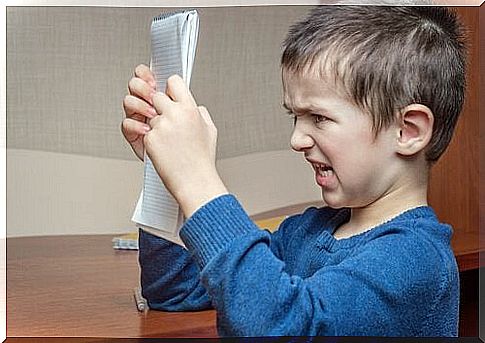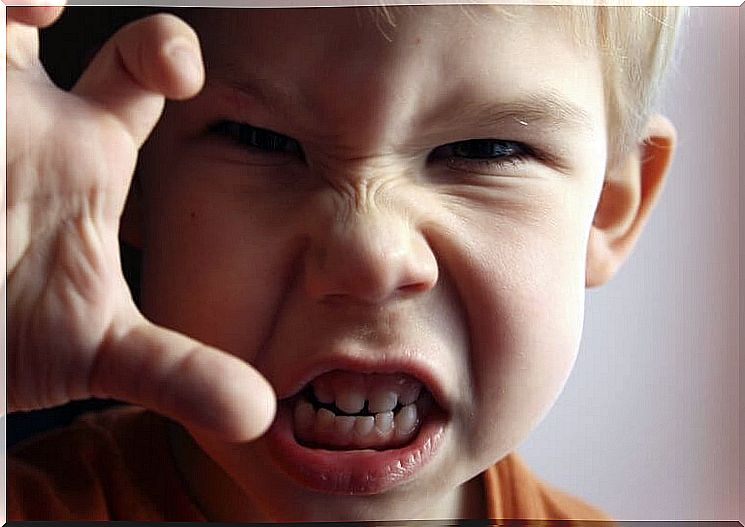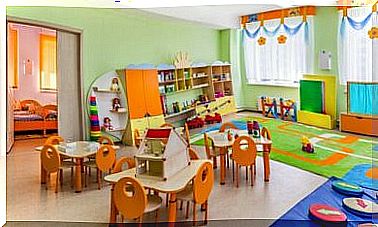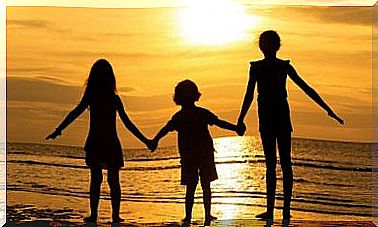Anger In Children: What Can Parents Do?

Anger in children is very common. It can be manifested through tantrums, kicks and even physical symptoms.
If left unchecked, anger can become destructive. Therefore, it is important to teach your child to deal with this feeling in a healthy way.
Anger is a feeling that is often seen between 2 and 4 years.
Feelings of frustration occur when the child is faced with a situation they feel is unfair or unpleasant.
When dealing with this topic, many parents are found in no man’s land. How can adults take control of this situation?
What is anger in children and how does it manifest itself?
Anger is a difficult feeling for children to deal with. It consists of an uncomfortable feeling or a discomfort in certain situations, which disturbs them greatly.
Children can express their anger through physical symptoms, such as tensing their muscles, which increase their blood pressure.
There are other visible signs of anger such as sweating, redness of the skin and headaches.
Their behavior is also affected: it can become difficult for them to move for no apparent reason.
Anger in children can also appear in the following ways: Kick, push, throw with toys, tug at hair, scream, bite and destroy things.
Causes of anger in children
A child’s anger is usually caused by internal or external problems such as:
- Stress.
- Physical or emotional problems that scare them.
- Frustration or impotence due to not being able to do anything.
- Bipolar disorder.
- Depression.
- Seeking attention.
- Has difficulty communicating.
- Hypersensitivity to stimulation.
- Fatigue, insecurity and jealousy.
Showing their anger is a way in which children express themselves.
Although it is not the best way, they use their anger to show their parents that something is important to them.

The importance of showing children one has to deal with anger
The feeling of anger can evoke unwanted behavior.
If a child always reacts aggressively to frustration, it can make them become violent adults.
This can have many consequences in social, emotional and physical areas.
“Anger is like fire; it is best to turn it off after the first spark. It’s too late then. ”
-Giovanni Papini-
12 techniques for controlling anger in children
Although a tantrum is usually occasional, parents should strive to control this feeling in their children.
To achieve this, consider the following strategies when it comes time to raise your child.
- Do not lose control. If you respond to their anger by shouting, you will only make the situation worse. You will also teach your child that shouting is acceptable behavior.
- Help the child to develop self-management capacities. That way, you will prepare them to deal with unwanted situations.
- Give them time to fall down. Give them some space rather than argue with them.
- Be strict with patience and love. This will make the child accept their role within the family.
- Avoid correcting the child when you feel frustrated or upset. If you do, you run the risk of abusing the child.
- Learn by example. The phrase “do what I say, not what I do” does not work.
- Let the child know that it is okay to get angry, but that excessive reactions are not acceptable.
- State the reasons why you refuse to give them something specific such as eating too many treats or watching too much TV.
- Encourage entertaining activities that can help the child channel their emotions.
- Praise and congratulate your child when they have done well.
- Teach the child to acknowledge their mistakes, to admit when they make mistakes and ask for forgiveness.

Benefits of controlling childhood anger
It is important for parents to teach their children to express, channel and deal with their emotions in the best possible way.
One of the benefits of this is that it promotes better communication between parents and their children.
The child will also learn that there are other ways to express themselves instead of crying.
They will also learn about empathy as they learn to control their emotions and interact with others.
Finally, it will help the child to learn that both mother and father are teachers.
If you think your child is having a hard time calming down, or if you find that they have frequent bouts of anger, it is best to consult a specialist.
Experts have the ability to evaluate and provide several techniques that can help manage their anger.









